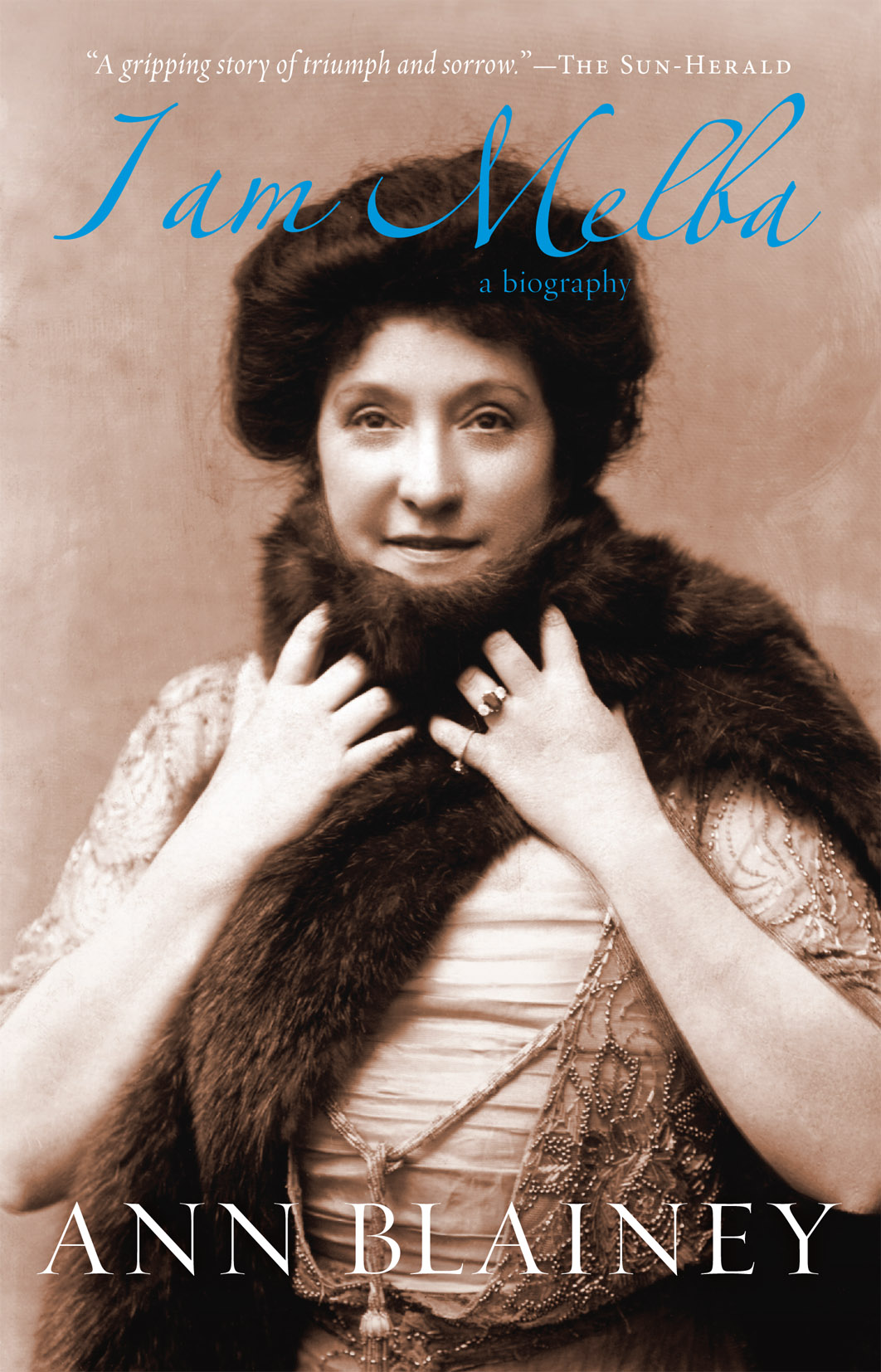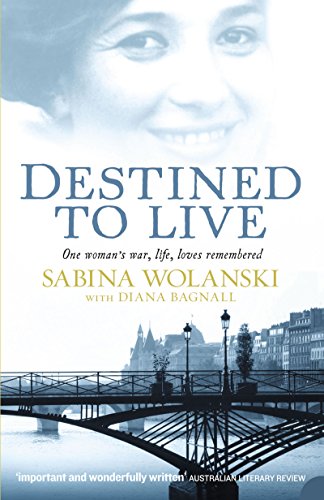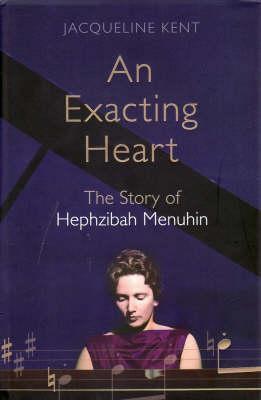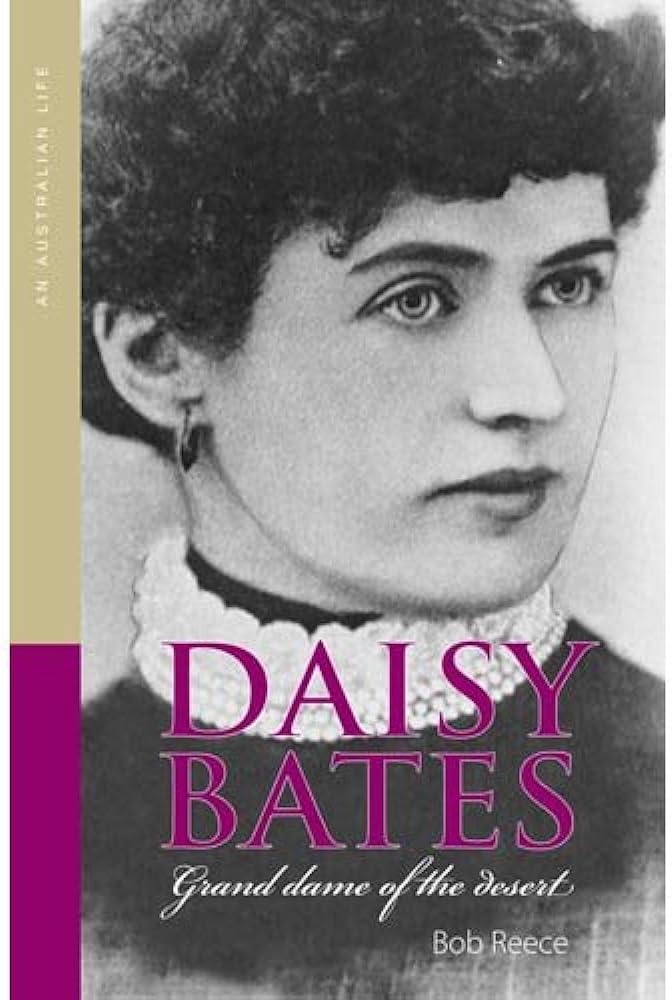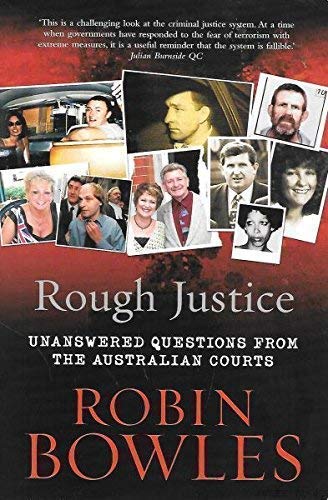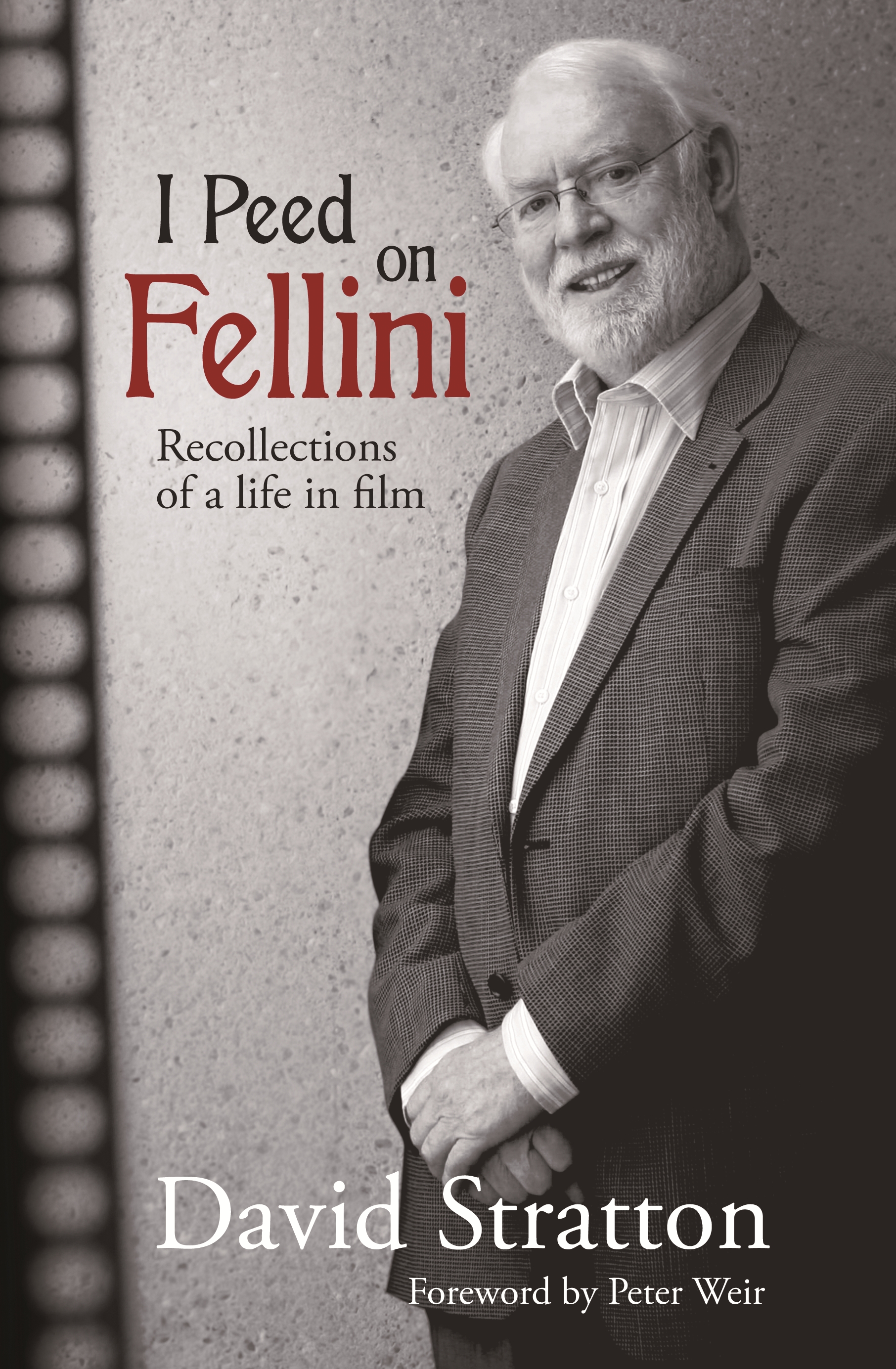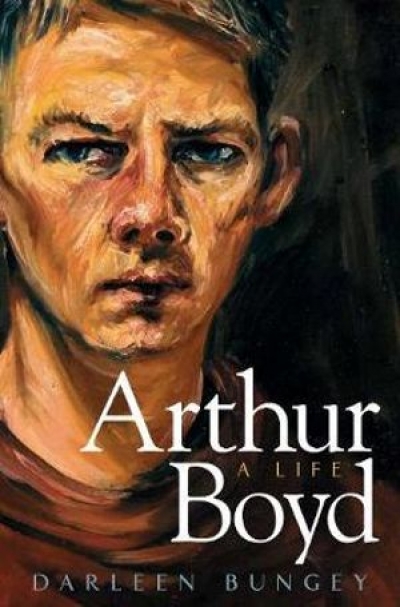Biography
On page sixty-two of Ann Blainey’s thoroughly researched, excellently written and beguilingly human biography of Nellie Melba there occurs a transition that is simple but that defines, in an instant, the moment the singer went from learner to legend. It happens when the young singer, under the wing of Madame Marchesi (née Mathilda Graumann; nickname ‘the Prussian drill-master’), is ready to make her public European début and requires a new surname. ‘Armstrong’ had to go; in its place, there had to be something ‘distinctive and memorable’:
... (read more)Destined to Live: One woman's war, life, loves remembered by Sabina Wolanski (with Diana Bagnall)
Amongst Holocaust accounts, literature and writing, there have emerged four distinctly identifiable forms: the academic historical text, exemplified by historians such as Martin Gilbert and Philip Friedman; literature, by writers such as Eli Wiesel and Primo Levi; the allegorical tale, such as Markus Zusak’s The Book Thief (2005), Karen Hesse’s The Cats in Krasinski Square (2004), and Art Spiegelman’s Maus: A Survivor’s Tale (1986); and the anecdotal account, such as this book by Sabina Wolanski, Destined to Live: One Woman’s War, Life, Loves Remembered.
... (read more)An Exacting Heart: The story of Hephzibah Menuhin by Jacqueline Kent
In early 1980, Yehudi and Hephzibah Menuhin undertook yet another concert tour. One of their last concerts together was in Valley Forge, Pennsylvania. There was a dismal yellow standard lamp for light and a revolving stage so that all the patrons could get value for money. The master of ceremonies introduced them as ‘Ham-erica’s own ... Yoohoo and Heffi Menhoon’. These exceptional siblings had been playing music together since 1932, usually in more salubrious venues. Yehudi often spoke of their liaison spirituelle and their ‘Siamese soul’. Their first public concert took place in 1934, in the Salle Pleyel in Paris. By 1980 it had become one of the longest and richest partnerships in the history of chamber music.
... (read more)Roma the First: A biography of Dame Roma Mitchell by Susan Magarey and Kerry Round
Roma Mitchell came first in nearly everything. Not only at school and university, but in becoming Australia’s first female OC, Supreme Court judge, Boyer Lecturer, university chancellor and state governor. But she had no inside track to success. Her father was killed in World War I, her mother survived on his pension and the generosity of friends, and Roma and her older sister were taught by the Sisters of Mercy for nothing.
... (read more)This memoir moves through points of intensity in Kate Llewellyn’s life, from an idyllic childhood at Tumby Bay on the Eyre Peninsula in the 1940s through to her leaving Adelaide to make a new life in Sydney in the 1980s. By this time she is a recognised poet, but her life is in turmoil. The book does not set out to tell a success story; rather, it describes that uneven movement from childhood innocence through adult experience, with all naïveté, self-delusion, idealism, and hard-learned lessons. It is quintessentially a poet’s book, its stories heightened by arresting images, its movement circling rather than linear.
... (read more)In the wake of the Commonwealth parliament’s apology to the ‘stolen generations’, what are we to make of Daisy Bates (1859–1951) – especially given that, in the past year, two new biographical studies have appeared, indicating, more than fifty years after er death, an enduring fascination with her commitment to ‘render the passing of the Aborigines easier’?
Bates will not ( as Ann Standish hoped) ‘sink like a stone', taking with her with the easy popularisation of some of the most morally and politically debilitating characterisations of the 'plight' of indigenous Australians: that 'full bloods' are doomed to extinction because they cannot cope with 'civilisation'; that 'half-bloods' are, at best, the consequence of that failure, needing to be saved, or, at worst, evidence of irredeemable lasciviousness. 'The only good half-caste,' Bates once confided, 'is a dead one.'
... (read more)Rough Justice: Unanswered questions from the Australian courts by Robin Bowles
This review of some contentious criminal cases in Australia over the last thirty years purports to demonstrate how the processes of the criminal law may, if mishandled, produce an unsafe conviction. The author has made her own investigations into most of the cases. She outlines her own discoveries and compares these to the findings of the police and the courts.
... (read more)I Peed on Fellini:: Recollections of a life in film by David Stratton
The tasteful title of this autobiography echoes the story once told of how the ebullient Italian producer Filippo Del Guidice performed the same disservice to J. Arthur Rank and survived to become a force in the British film industry. David Stratton, after looking sideways in a Venetian toilet, never looked back – despite Fellini’s understandable choler.
... (read more)Peter Sculthorpe: The making of an Australian composer by Graeme Skinner
Peter Sculthorpe must already be the most written-about of Australian composers, by a comfortable margin. One might legitimately wonder whether we need another Sculthorpe book in preference to an in-depth study of one of his comparatively neglected colleagues. However, this imbalance is not merely quantitative, but points to an underlying phenomenon: Sculthorpe’s position, in the concert-going public’s imagination, as the very incarnation of Australian ‘serious’ music. This phenomenon is, in a way, the real subject matter of Graeme Skinner’s new book – a meticulously detailed biography not only of the man but also of his almost mythic persona as The Great Australian Composer, created by Sculthorpe himself and by others.
... (read more)‘More difficult to do a thing than to talk scintillating dialogue of 1890, ‘The Critic as Artist’. To hold to such a belief, Gilbert declares, is ‘a gross popular error. It is very much more difficult to talk about a thing than to do it. In the sphere of actual life that is of course obvious. Anybody can make history. Only a great man can write it.’
... (read more)
